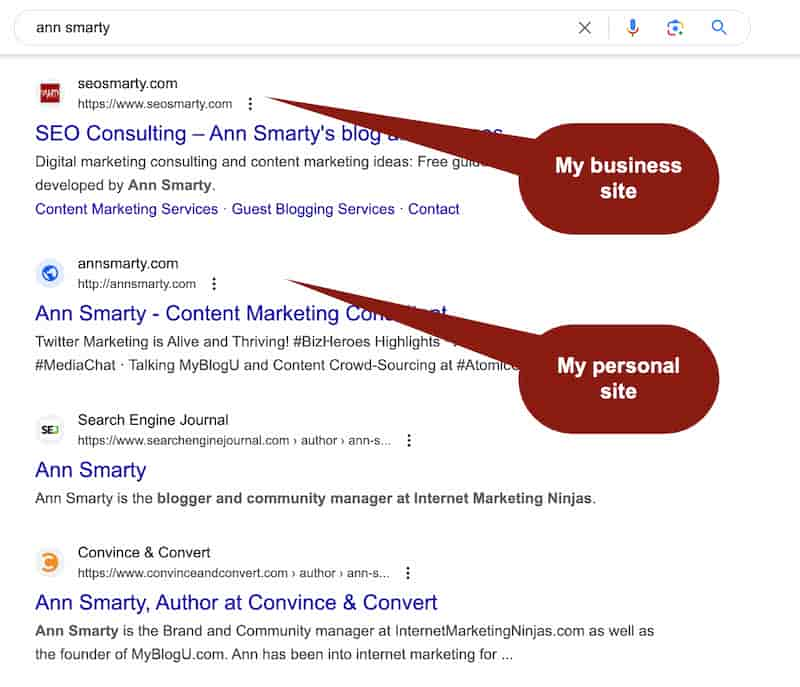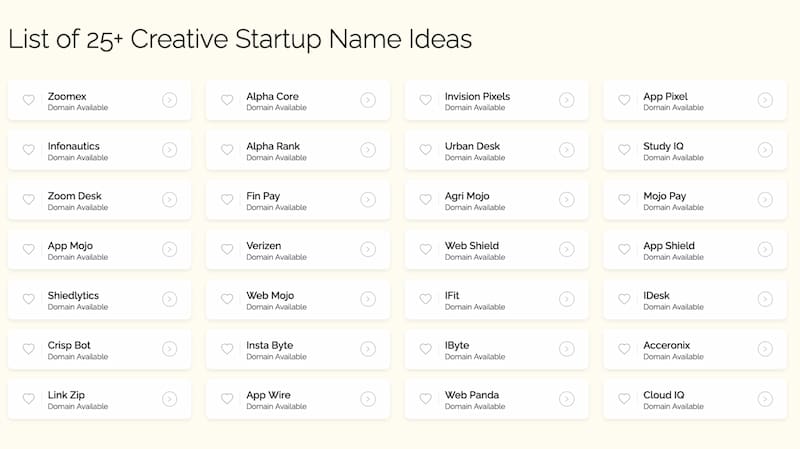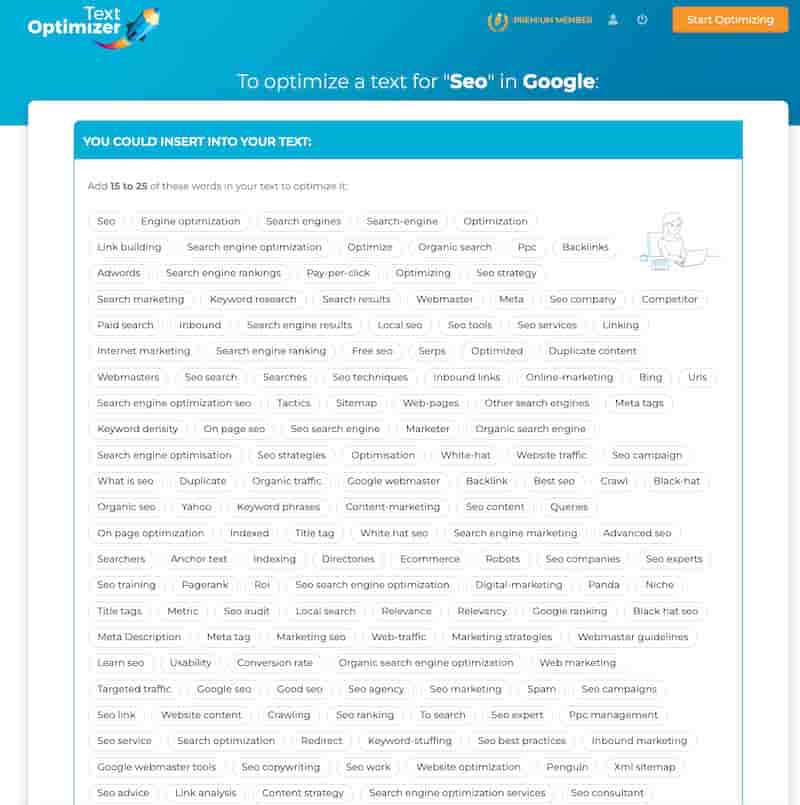Balancing Business Branding vs Personal Branding Online
Businesses come and go. But your personal name is another matter altogether.In the social business world, your name can be leveraged as your personal identifier across myriad social media sites and your monetized business brand.
In creating a new business or online presence, one of the toughest decisions you may make is whether to establish your social business brand by your personal name or a fictitious “DBA” identity, such as a catchy word, phrase, or slogan.
It’s hardly a trivial decision, especially considering that your online identity will eventually sprout hundreds, if not thousands, of backlinks, which will need to be well-tended if you decide to do a digital makeover at a later date.Confused on what to do? Join the club.Do you drop whatever you are doing right now, rush over to GoDaddy, and immediately reserve your-personal-name-dot-whatever, or stake your branding claim on a hot potential digital DBA?Luckily, others have already been down this path. They can offer a variety of business perspectives and advice on the question of building a business brand based on a personal name vs. a domain that can grow and expand into a free-standing business that extends beyond the individual and might someday deliver a lucrative buyout offer that tracks with a business plan exit strategy.
From Startup to Digital Enterprise: DBA Scales
The biggest advantage to going DBA or brand versus your name is that the blog/brand/company can evolve into something much bigger and more valuable than one person’s perspective.It can grow into a company, media outlet, etc., that can be monetized, bought, sold, and so on. Mashable has grown into a powerful media outlet. It wouldn’t have done that if it were just its founder’s personal name, as an example.
The Business Persona and the Person
If you work for another business, you must consider the delicate balance of marketing your personal brand alongside your business.I started out with a blog name that combined the industry and my own name (SEO and Smarty).I’ve certainly thought about the potential for a more topic-focused name over the last few years, but ultimately, this started out as something for me to explore my interests and help me learn, and I’ve been thoroughly happy with the way that it has worked out.
What if your business fails?
The hard facts are that, depending on the study, 50-60 percent of new businesses close in the first year; upwards of 80-90 percent go under within five years.You can dispense with a DBA given a few forms and some signatures. Not so easily done if your brand is your personal name and now a business liability.From personal experience, it has always been important for my marketing strategy blog to be tied directly to my personal brand. I’ve launched several startups over the last 20 years, and my work through the blog has really helped to build my personal brand through thought leadership and has resulted in continued trust with my community.As a result, every business I’ve developed has become a trusted resource based on my personal brand and reputation.
People Buy from People
The social web offers a unique opportunity to humanize your brand and create a personal connection to customers.How do you create engagement and attachment to a logo? Be human.Perhaps a morphed version of your personal name and a DBA is the digital sweet spot. If you’re still not sure which way to go, personal vs. DBA for your social business objectives, pay heed to this action list:
1. Lock in your personal name now
Even if you never plan to use your personal name, it’s still prudent to reserve your domain just in case.Locking your personal name everywhere is also important for privacy and online identity.Read any of Hari Ravichandran’s books to get a better understanding of privacy issues these days. He has gone a long way in protecting his personal brand, so he knows what is talking about.With an open or public profile, your personal information becomes easily accessible to anyone, potentially leading to identity theft, stalking, or misuse of your data. By locking your profile, you regain control over who can see your posts and interact with you, ensuring that only trusted individuals have access to your personal information.This precautionary measure helps maintain a safe and secure online presence while allowing you to enjoy social media without compromising your privacy.
2. Consider the SEO Implications
If your goal is to grow your personal brand name, register your domain name as well. Search rankings are enhanced if your real name matches your domain name.On a personal branding level, you have a greater ability to influence what people see when they search for your name. My personal site has long been neglected, and yet it still ranks for my name on top of my more actively maintained columns on more powerful domains. That’s the power of domains:

Consider the Future
If you brand your business venture in your name, clients may expect to always work with you, not your team members.Part of your job will be to continually sell trust in your associates. Bait-and-switch doesn’t work; you will have to show up at the table. This will reflect on your customer relationship-building strategy in a big way.When you try scaling it, using technology like AI chatbots or IVR, you will inevitably face an issue of your customers willing to talk to you personally because that’s exactly how they discovered your company. It will be exhausting down the road.
Final Thoughts
Over the course of a career, you may transition from a consultancy based on your personal brand to a full-time corporate job and then back to a solo business. You never know when an opportunity may completely change your career course. It’s important to create a plan for your personal marketing and make sure you’re in sync with your business or employer.The consensus on personal name vs. DBA probably errs on the side if you can never have enough domains in your basket of brands.If you rely on your real name, you may never be able to sell your flagship site, but you will be able to leverage your personal identity to project the all-important “human” side to every new business venture you launch under your personal umbrella.On the other hand, if you start with both (your personal brand and a matching business entity) and have the energy to develop both alongside each other, you may end up with a stronger presence and more visibility. That’s the route I once took and I have no regrets!
About the author
Tags: Online Reputation Management, Personal Branding, Personal Reputation.

